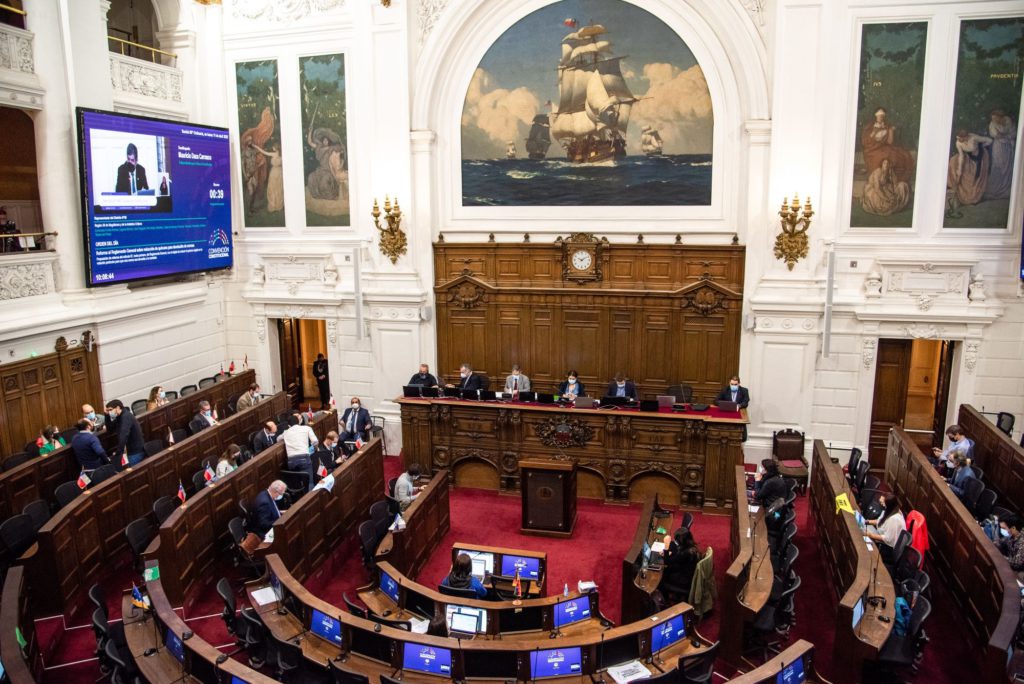Chilean political parties agreed to revive the process to write a new constitution after three months of intense negotiations, following an overwhelming vote to reject a first proposal in September.
(Bloomberg) — Chilean political parties agreed to revive the process to write a new constitution after three months of intense negotiations, following an overwhelming vote to reject a first proposal in September.
The new process, which both chambers in congress must approve, includes the creation of a constitutional council of 50 elected officials and a commission of 24 experts. The Senate and Lower House will each appoint half of the experts.
The commission of experts will begin work in January on a constitutional proposal that will serve as a basis for the council to work on, Senate president Alvaro Elizalde said Monday in a televised press conference. Members of the council will be elected in April, and a draft should be presented in October. A final plebiscite would happen in November or December next year. The council will have gender parity and additional reserved seats for indigenous groups.
“I value this agreement,” President Gabriel Boric said in televised comments Tuesday. “We all had to move from our original positions.”
Market reaction was muted early Tuesday. Chile’s peso weakened 0.2% after gaining earlier. Swap rates were little changed.
Making Concessions
Many in the ruling coalition had opposed the idea of a panel of experts. However, opposition parties wanted to avoid a repeat of the previous fully elected assembly, which produced a charter that, they warned, undermined investment and growth.
Most political parties signed yesterday’s agreement. The new constitution must include some basic principles agreed in advance by the parties: protect nature, respect central bank autonomy, respect private property, acknowledge indigenous rights and maintain the current Lower House and Senate, among others.
“Debating and writing a new constitution is crucial, and requires professionalism and a newly elected body,” lower house President Vlado Mirosevic said Monday.
Articles must be approved by 3/5 of council members to be included in the draft. Articles that don’t meet that threshold but aren’t rejected by 2/3 of delegates will be reviewed by a mixed commission of experts and elected members.
The push to replace the current charter, which dates from the dictatorship of Augusto Pinochet, came in response to a wave of social unrest in 2019. Chileans rejected the first draft in a plebiscite Sept. 4. Many thought the proposal went too far, would damp growth, erode essential checks on power and lead to more fiscal spending.
Read More: Chileans Reject New Constitution in Blow to Leftist Leader
(Updates with comment from President Gabriel Boric in the fourth paragraph and market reaction in the fifth.)
More stories like this are available on bloomberg.com
©2022 Bloomberg L.P.










